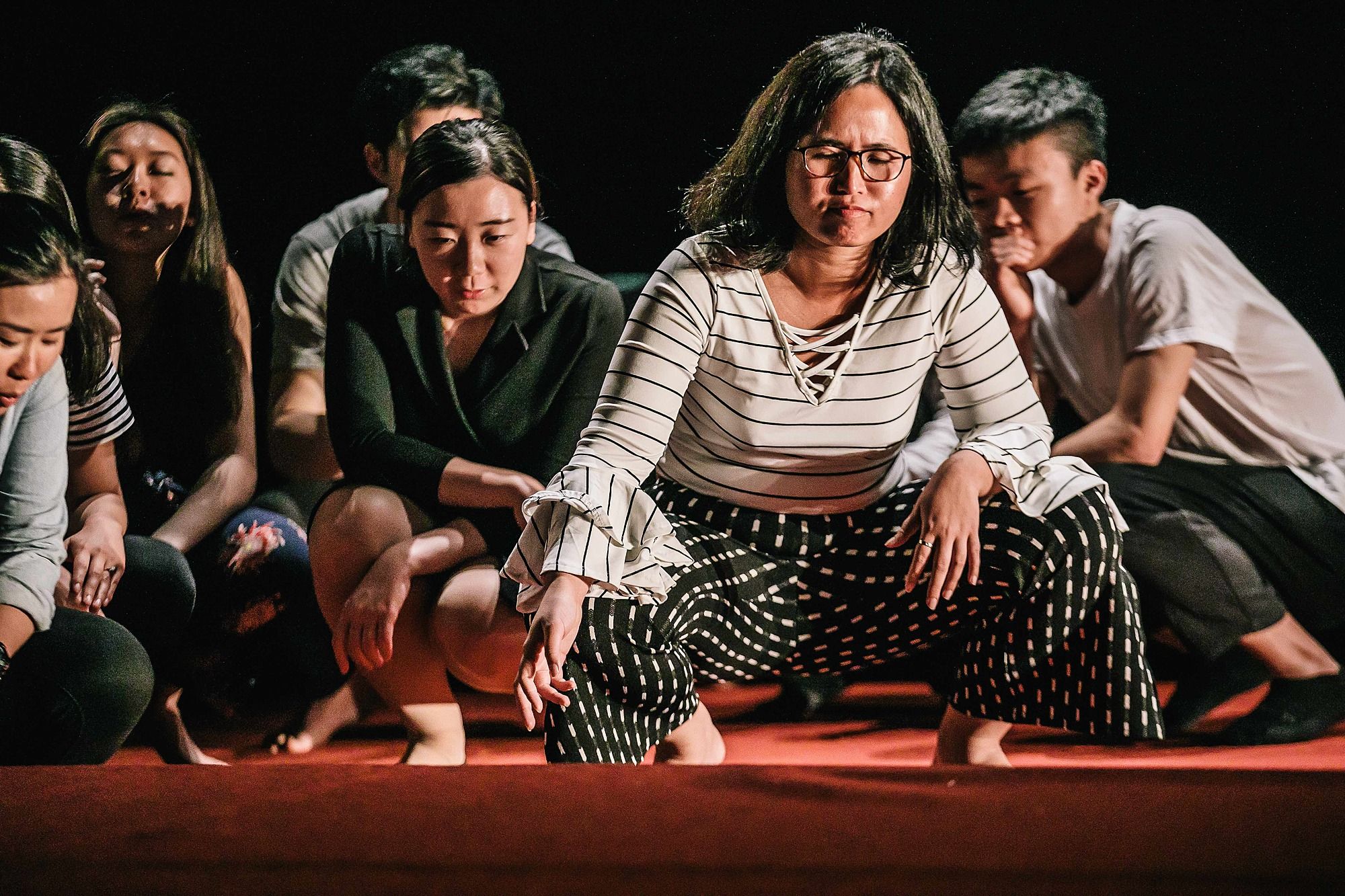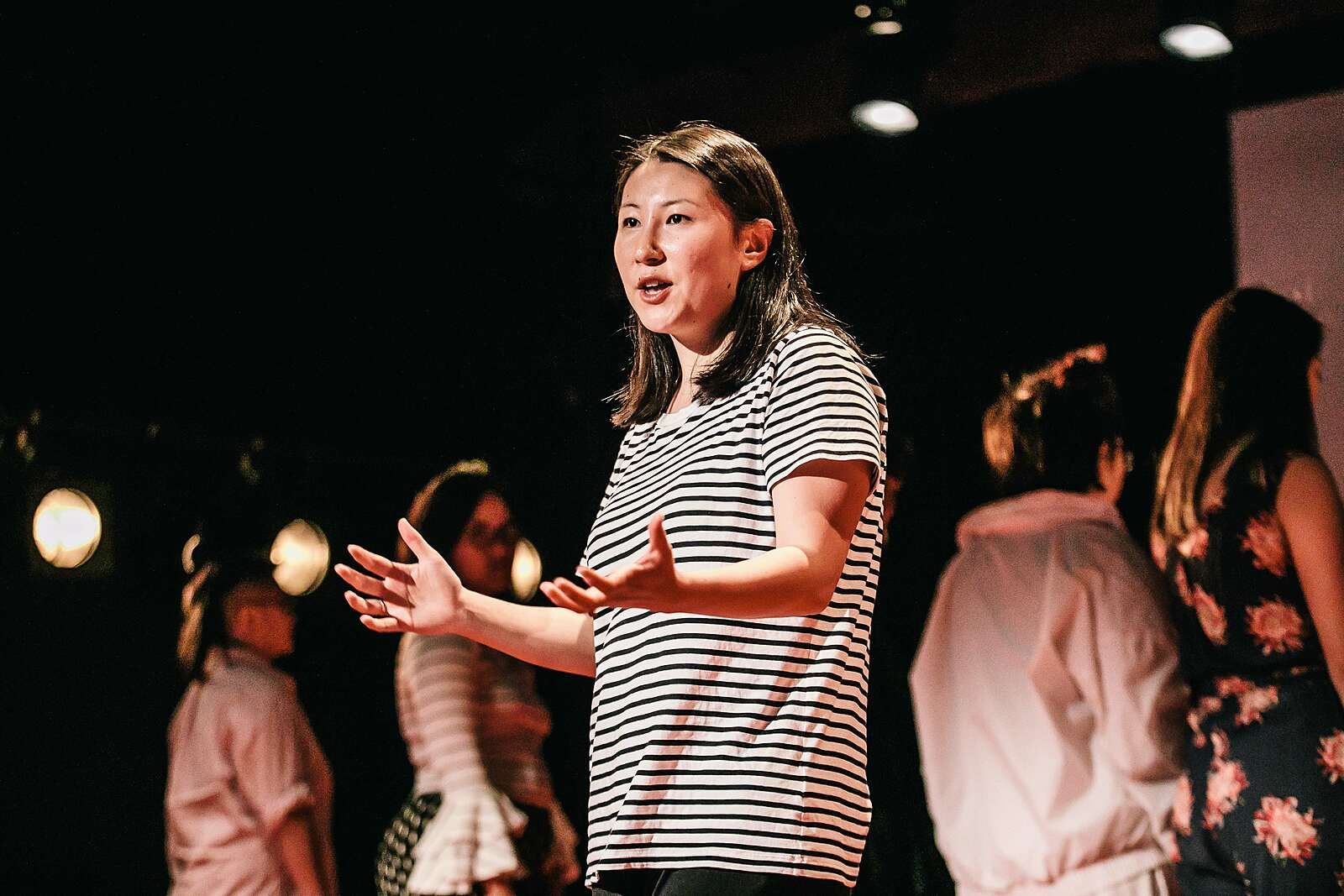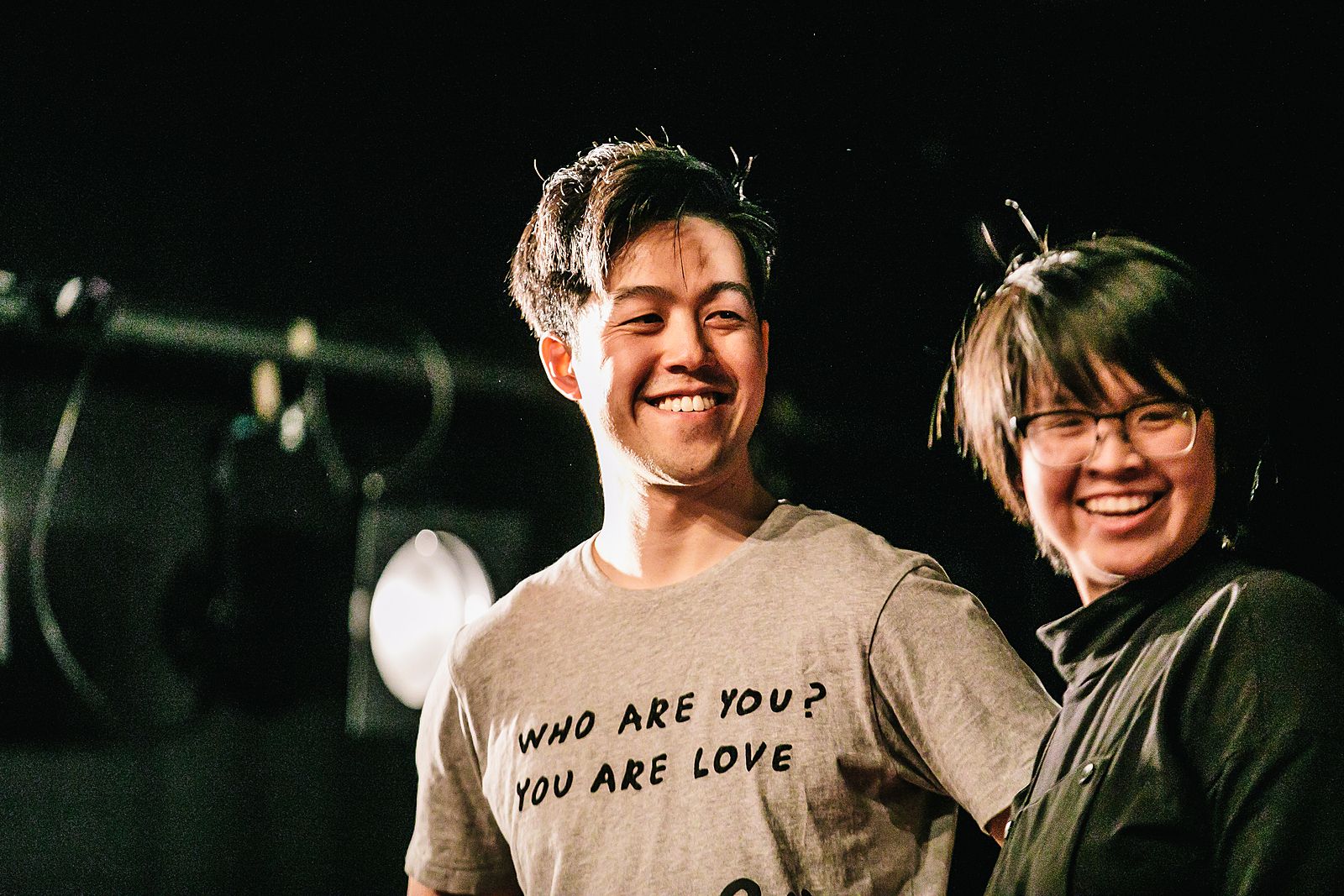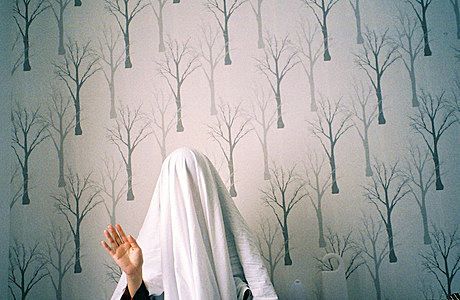Rejecting Singularity: A Review of OTHER [chinese]
Amy Weng reviews Alice Canton's ambitious documentary work currently playing in the Matchbox season at Q Theatre.
Amy Weng reviews Alice Canton's documentary work currently playing in the Matchbox season at Q Theatre.
OTHER [chinese] is an ambitious undertaking – part social experiment, political movement, oral history and archive – not to mention an hour and a half of live documentary theatre, that promises to delve deep into the complexities and contradictions of Chinese identity in Aotearoa today.
Directed by Alice Canton, whose explosive one-woman exegesis WHITE/OTHER debuted last year at The Basement Theatre, OTHER [chinese] brings together a cast of non-actors from the New Zealand Chinese community to tell their own stories on stage. Developed over a series of open-call workshops, the show weaves together a tapestry of video interviews, impromptu Q&A style surveys, and personal anecdotes that raise fundamental questions about the experience of being other.
The show draws you into an intimate confidence even before the lights dim. Viewers are expected to remove their shoes at the door – a nod to the Chinese custom before entering the home. And viewing this show is like entering the home of a close friend; to reminisce and pick over old wounds that never quite seem to heal.
At its core, OTHER [chinese] attempts to grapple with this nation’s anxiety of the yellow peril. So close to elections, it’s hard to mitigate the sense that political parties are willing to risk it all for the vote, meaning immigration policies often come to an ugly fore. Yet OTHER [Chinese] remains upbeat (“If you're buying a house, just head over to number 4, no Chinese there!”) whilst tackling the controversial and the banal.
Tales of sex and sexuality, gender equality and filial piety are told with an electric candour, while notions of ‘Kiwiness’ are probed with wary fingers. Ambition, motherhood and mixed-race identity are examined without falling into platitudes. Chinese and Māori relations are also explored, but this seems a bigger issue than what the scope of the show allows for.
All the while Canton herself remains in the background, shifting the focus onto the cast which is ultimately where the power lies. So much of the impact of this show resides in its ability to conjure up the relatable and conflicting experiences of Chinese New Zealanders, its humanity and its foibles. At one moment in the show I heard myself shouting with laughter only to realise that my Pākeha neighbours were sitting in relative silence. Does this mean that OTHER [chinese] speaks only to marginal experiences? I think the answer is no. This is a show that resonates strongly with its Chinese audience but it is also a show that speaks to anyone who has ever felt the weight of expectation on their shoulders.
I enjoyed that parts of the show were delivered in native Mandarin and Cantonese but this conceptual gesture seemed to undermine itself somewhat when English interpretations were given – does the audience deserve the privilege of knowing everything? Or is there an assumption being made about who the audience is, or who who we need to convince?
A couple of pro-assimilation views from both long-time Chinese New Zealanders and more recent migrants. . .bring into sharp relief the full spectrum of divisive opinions on Chinese migration.
Perhaps the hardest part of the show to stomach comes through in a couple of pro-assimilation views from both long-time Chinese New Zealanders and more recent migrants. It brings into sharp relief the full spectrum of divisive opinions on Chinese migration, as well as raising fundamental questions about the cultural ideology of mainstream New Zealand. This means that OTHER [Chinese] isn’t just a feel good performance to soothe the conscience of its funders.
Canton herself cites RED – a documentary performance by the pioneering Beijing-based choreographer Wen Hui as a source of inspiration. There is a parallel attempt to enrich the material culture of the show through Youtube video montages, an accompanying zine publication, and photographic exhibition to varying degrees of success, but it's the act of witnessing that makes this show so unique. The cast are immensely charismatic which is a revelation, given that for many of them, this is their first time public speaking.
Don’t get me wrong, because OTHER [chinese] is something that New Zealand needs. It’s a testament to Canton’s skill as a storyteller and facilitator that the show, and its accompanying workshops, convey a strong sense of empowerment through the affirmation of personal experiences. And this is something that we have been waiting a long time to see.
So does Canton manage to resolve her existential crisis that began with WHITE/OTHER? The show doesn’t draw any neat conclusions about what is or what is not Chinese. Instead it unleashes a collective howl against the prevailing wind. Change is coming – this is only the beginning.
OTHER [chinese] runs from 6-16 September at Q Theatre. Tickets available here.




